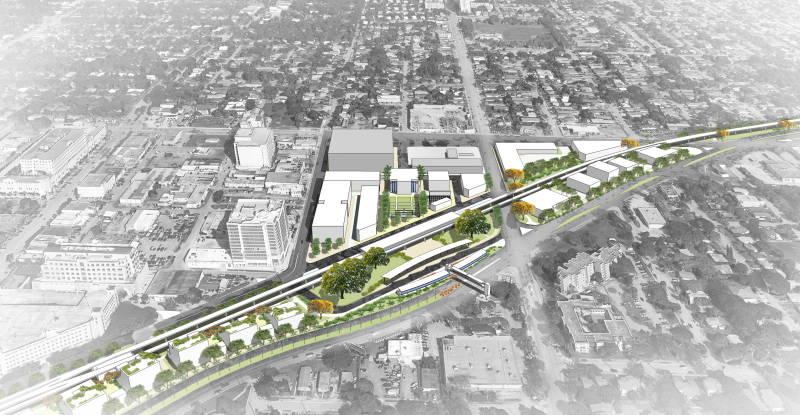Civil Engineering Magazine: Miami Plans Big For Underline
 Civil Engineering, the magazine of The American Society of Civil Engineers, reviews the status of The Underline in Miami. Writer T.R. Witcher interviews Miami Dade County’s Parks, Recreation and Open Spaces Planning Director, Maria Nardi, University of Miami School of Architecture Professor Rocco Ceo, and Meg Daly, Founder Friends of The Underline, to share the collaborative effort bringing Miami’s most exciting public realm initiative to fruition.
Civil Engineering, the magazine of The American Society of Civil Engineers, reviews the status of The Underline in Miami. Writer T.R. Witcher interviews Miami Dade County’s Parks, Recreation and Open Spaces Planning Director, Maria Nardi, University of Miami School of Architecture Professor Rocco Ceo, and Meg Daly, Founder Friends of The Underline, to share the collaborative effort bringing Miami’s most exciting public realm initiative to fruition.
A bicycle accident paves the way for a 10-mile parkway under Miami’s elevated train system.
In two short years, Daly’s idea has taken root in the city. Daly founded the nonprofit Friends of the Underline and took her idea to an architecture studio at the University of Miami. She mobilized support from a variety of public agencies, including Miami-Dade Transit; the Florida Department of Transportation (FDOT); the Miami-Dade Parks, Recreation and Open Spaces Department; the Miami-Dade County Metropolitan Planning Organization; and the county’s Public Works and Waste Management Department.
“We want park nodes built along the Underline to be responsive to the needs of residents in the various neighborhoods it crosses and represent the unique quality of each community,” says Maria Nardi, the chief of planning, research and natural areas management divisions for the Miami-Dade County Department of Parks, Recreation and Open Space. As Daly puts it, the “trail is the connective tissue.”
Now, fittingly, Daly’s dream has even grown closer to reality: James Corner Field Operations, the New York City-based landscape architecture firm behind the High Line, has been chosen to develop a masterplan for the project over the next six months. From there two segments of the line will be developed, and the rest of the project, supporters hope, will follow.
“What was really valuable [to the UM School of Architecture students] about this project is that this was very real from the get-go,” says Ceo. “You’re setting the tone for getting the project off the ground and putting visual images out there for people to begin to discuss and engage [with].” It helped that the students knew that the project was real and would continue to be developed, he says. “This wasn’t just a hypothetical project you put on the shelf and walk away from.”
James Corner Field Operations will undoubtedly develop its own ideas, but Ceo hopes his students’ work will inspire the final project. “One of the things that’s special about Miami and south Florida is the kind of diversity and multiculturalism that exists [here] on a 24/7 basis,” he says. “We live in a place where people can be out all day and all night. It would be nice to see it conceived in that way.”
Click here for the rest of the article.